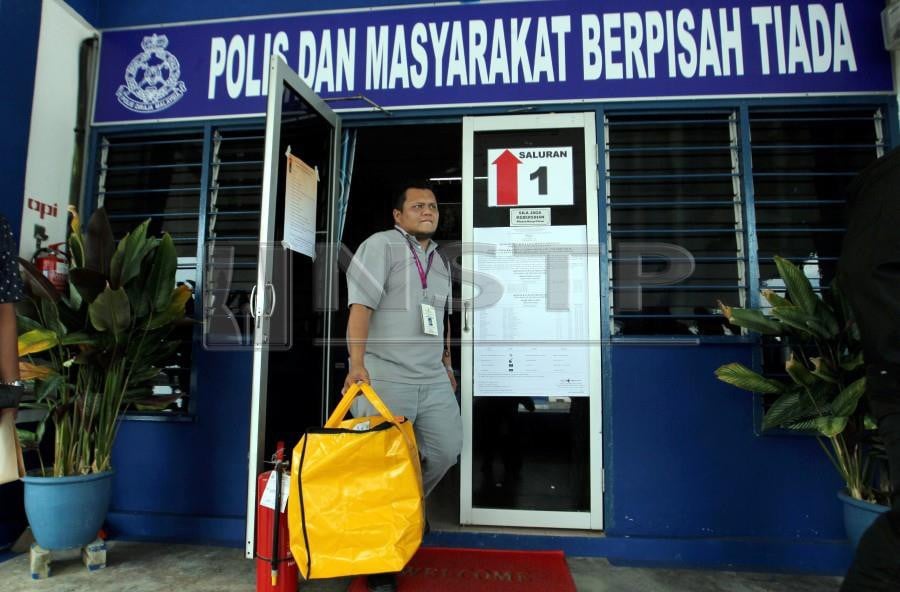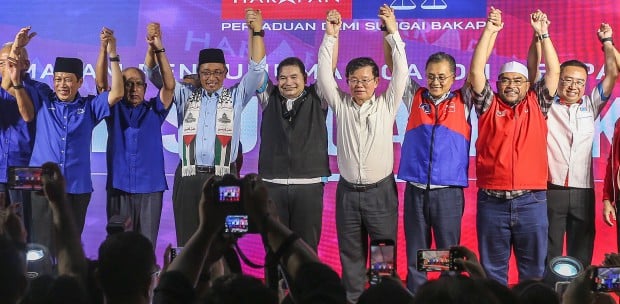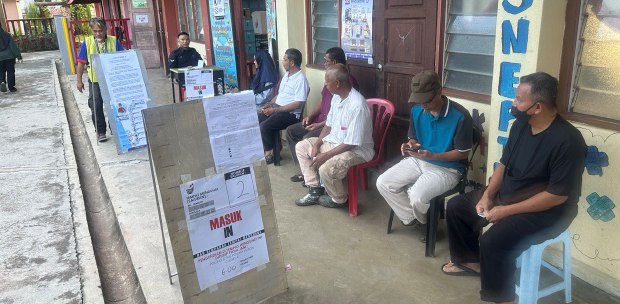CAMERON HIGHLANDS: Candidates and parties involved in the Cameron Highlands by-election must work hard to ensure that as many voters will come out to cast their ballots this Saturday.
This is specially in regards to locations faced with logistics issues and difficult to penetrate, especially voting districts involving the Jelai state constituency.
This as many of the voting districts involved in the by-election would be closed before 5pm with only four polling centres to stay open until 5.30pm, all of which are located in the Tanah Rata state assembly constituency.
The worry over the early closure involving 25 polling centres between 1pm and 4pm was also voiced out by Umno secretary general Tan Sri Annuar Musa who before this had stated that the early closure would affect voters including those returning from outside the constituency to cast their votes.
Political analyst and research fellow from the Malaysian Political Research Institute of Universiti Utara Malaysia (UUM) Dr Achmad Dzariean Mohd Nadzri, said the Election Commission (EC) may have had their own reasons as to why they had to close polling centres early.
“Such a situation would definitely affect the political parties and the candidates who are contesting.
“Here, they would need to find the most appropriate solution on how to ensure all the voters in the respective areas can go out and perform their responsibilities to cast their votes.
“What matters is how they need to ensure that every effort has been taken in bringing out voters (to cast their ballot papers), as long as it does not violate the EC’s stipulated conditions,” he said recently.
He added that support received by both Barisan Nasional (BN) and Pakatan Harapan (PH) are equal and has in fact reached a saturation point.
He said this was because in the 13th General Election (GE13) and the 14th General Election (GE14), BN did not win with a big majority.
He said in this regard, BN was continuing to work at maintaining its support in the Jelai State constituency, currently represented by Pahang Menteri Besar Datuk Seri Wan Rosdy Wan Ismail.
As for PH, he said they wanted to maintain their support in the Tanah Rata state constituency, currently represented by DAP through Chiong Yoke Kong.
Meanwhile, Universiti Sains Malaysia (USM) political analyst, Prof Dr Sivamurugan Pandian observed that as the campaign enters its second week, both PH and BN would now be more focused on what efforts needed to be taken to ensure victory was on their side.
He said a stiff competition involving both sides in the by-election could be seen from BN’s efforts through its candidate Ramli Mohd Nor, in defending their stronghold of Jelai.
PH, he said, through M. Manogaran, was attempting to penetrate the state constituencies by taking a more aggressive campaign approach.
“Looking at the PH big-wigs going down to the ground for ceramah in the Felda areas and Orang Asli villages which are known as BN strongholds, for sure PH would want to do their level best to attract the votes to their side.
“Looking at the votes received by both BN and PH in the previous GE which were more or less of equal nature, the effectiveness of the respective camps' campaign process will have a huge impact on voters.
“There will also be some external factors which would affect the voting, such as outside voters not expected to return home twice (for Chinese New Year and voting) due to costs, Indian voters pattern as well as current issues involving PH’s pledge may influence voters,” he said.
He added that PH might have the edge as they were now the Federal Government administrators, however, BN’s strength should also not be dismissed.
This was due to BN’s strength in fielding an Orang Asli, seen as giving an advantage to the Orang Asli voters as well as due to the fact that Pahang remains under the BN administration.





